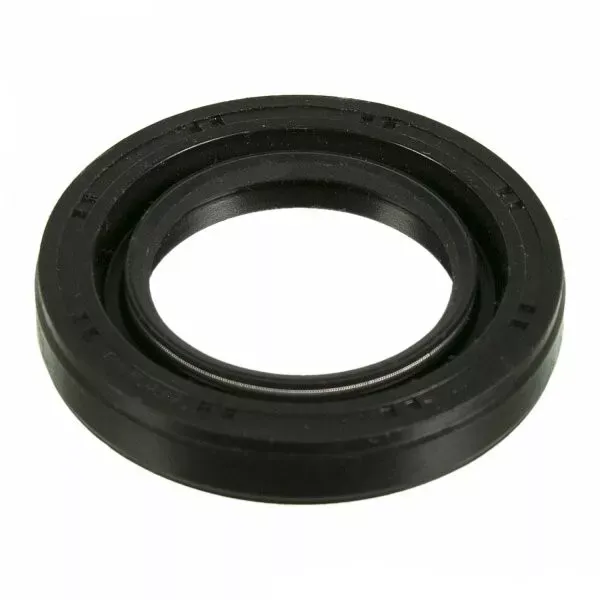gasket oil cooler
Understanding Gasket Oil Coolers Importance and Functionality
Oil coolers are essential components in many automotive and industrial applications, playing a crucial role in maintaining optimal operating temperatures for engines and machinery. Among the various types of oil coolers, gasket oil coolers stand out for their efficiency and reliability. This article explores what gasket oil coolers are, how they work, their advantages, and the importance of proper maintenance.
What is a Gasket Oil Cooler?
A gasket oil cooler is a type of heat exchanger designed to dissipate heat from engine oil, thus enhancing the overall performance and longevity of an engine. The cooler is typically composed of multiple plates or tubes that have gaskets between them. These gaskets act as barriers, allowing the oil to flow through while separating it from the coolant or air that absorbs the heat away.
The design of gasket oil coolers facilitates a large surface area for heat exchange, making them highly effective at transferring heat from the oil to the cooling medium. This is particularly useful in high-performance engines or machinery where maintaining a lower oil temperature is vital for optimal performance.
How Does a Gasket Oil Cooler Work?
The functionality of a gasket oil cooler is relatively straightforward. As engine oil circulates through the cooler, it encounters a colder medium, generally water or air. The heat from the oil is transferred through the walls of the cooler and into the coolant, allowing the oil to exit the cooler at a lower temperature.
1. Oil Flow The engine oil is pumped into the cooler from the engine or transmission, where it has absorbed heat during operation. 2. Heat Exchange Process As the hot oil flows between the plates or tubes, it travels through sections divided by gaskets. The coolant, flowing in the opposite direction, absorbs the heat from the oil. This counter-flow design enhances the cooling efficiency.
3. Cool Oil Return Once the oil passes through the cooler, it exits back into the engine at a significantly reduced temperature, helping to maintain optimal operating conditions.
Advantages of Gasket Oil Coolers
Gasket oil coolers offer several advantages over traditional oil cooling methods, such as air-cooled systems or oil-to-water heat exchangers. Here are some key benefits
1. Efficient Heat Transfer The design allows for a larger surface area, improving the efficiency of heat transfer between the oil and the cooling medium.
gasket oil cooler

3. Versatility They can be adapted for various applications, including cars, trucks, and industrial equipment, providing flexibility for different oil cooling needs.
4. Cost-Effective Generally, gasket oil coolers are less expensive to manufacture and install compared to other cooling systems, providing a cost-effective solution for effective oil cooling.
5. Easy Maintenance With fewer moving parts and a simpler design, gasket oil coolers tend to require less maintenance than other types of coolers.
Importance of Maintenance
To ensure the longevity and effectiveness of a gasket oil cooler, regular maintenance is imperative. Over time, contaminants and debris can accumulate in the cooler, reducing its efficiency. Here are some maintenance tips
1. Regular Inspections Check the cooler for any signs of wear, leaks, or blockages. Regular inspections can help identify issues before they become significant problems.
2. Flushing the System Periodically flushing the oil system can prevent the buildup of sludge and contaminants, ensuring the cooler operates at maximum efficiency.
3. Checking Gaskets Inspect the gaskets for any signs of deterioration or damage. Replacing worn gaskets can prevent leaks and maintain sealing efficiency.
4. Maintaining Oil Quality Using high-quality oil and adhering to oil change intervals will reduce the likelihood of contaminants accumulating in the cooler.
Conclusion
Gasket oil coolers are vital components in many engines and machinery, promoting efficient heat management and improving overall performance. Their efficient design and ease of maintenance make them a popular choice for both automotive and industrial applications. Understanding their operation and maintaining them properly can significantly extend the life of the engine and enhance its performance, making gasket oil coolers an invaluable element in effective engine management.
-
The Ultimate Guide to Boat Propeller Bearings and Trailer Wheel Bearings
News Jul.31,2025
-
The Essential Guide to Marine Bearings and Boat Trailer Wheel Bearings
News Jul.31,2025
-
The Complete Guide to Heavy Duty Seals: Protecting Doors and Spaces Efficiently
News Jul.31,2025
-
Essential Guide to Marine Shaft Bearings and Boat Trailer Axle Bearings
News Jul.31,2025
-
Comprehensive Guide to Marine and Trailer Bearings for Safe Boating and Transport
News Jul.31,2025
-
Comprehensive Guide to Automotive Oil Seals: Protecting Your Engine and Shafts
News Jul.31,2025
-
Understanding Automotive Oil Seals: Essential Components for Engine and Shaft Protection
News Jul.30,2025
Products categories















